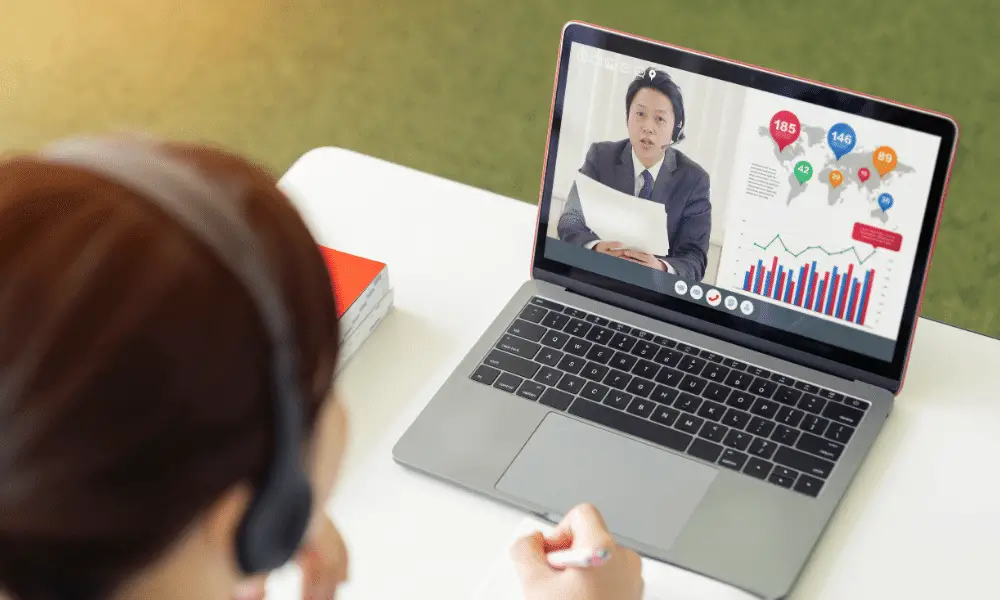Technology is here to stay, and it’ll continue to update our current education models. Teachers are now using it in their favor to help their students reach their potential. This way, those students will be able to succeed in a constantly-changing future of work.
In the past, we used to picture our teachers as old-fashioned professionals; some were actually orthodox. However, today’s teachers are more interested in technology and its benefits for education.
According to VisualCapitalists [infographic], nine out of 10 educators are interested in using technology in the classroom. In this guide, we’ll show you how technology is changing the education industry.
Top 5 Educational Technology Trends for 2022:
1. Artificial Intelligence (AI)
Artificial intelligence exists in almost every aspect of our lives, from our cars to our TV and even customer service. It is a discipline or technology that involves programming machines to simulate our behavior. Imagine all the things we can do with it. Teachers are now leveraging AI for educational purposes.
One of the applications of AI in the classroom is the use of chatbots. It’s incredible how chatbots can improve students’ yield and performance, but it’s possible with the right software. Chatbots can easily review students’ work without the teachers’ supervision to provide immediate feedback and grades.
The infographic we previously mentioned shows that students who receive immediate feedback are more likely to show improvements than those who get delayed responses. Besides, chatbots have 92% more accuracy than humans at grading students.
This way, teachers have more time to focus on their content strategy and implement it in the classroom. Students, on the other hand, get personalized reminders based on their own cognitive characteristics. This helps them study at their own pace and improve their performance.
This doesn’t mean that AI is going to replace teachers or data scientists. Robots still haven’t figured out how to develop creative skills, empathy, or intuition. Those are only human traits that are vital for the education process. Chatbots are here to enhance the learning experience.
See Also:
2. VR and AR
Virtual reality and augmented reality are exciting technologies that could potentially change the way we perceive our classes. The possibilities are endless when you have the right software and a pair of headsets in the classroom. Teachers can show their students how life can be in the future, how it was thousands of years ago, or simply take them to a different location without leaving the classroom. AR and VR keep students engaged with the class and create memorable times in the classroom.
3. Cloud-based eLearning Platforms
Due to the COVID-19 pandemic, the use of eLearning increased. Students were able to continue studying from home while protecting themselves from getting the virus at school. Yet, it seems like that trend is here to stay.
eLearning was already a thing before the pandemic. According to EducationData, 4.6 million students participated in online education in 2017. This trend just radically increased during the pandemic, but many schools are planning to maintain some subjects under the remote learning model.
However, this doesn’t mean that in-presence education is over. It just means that some classes will be online and others inside the classroom because they require on-site interaction.
Related: What Strategies Can Be Adopted to Make Online Classes Interesting
4. Personalized and Adaptive Learning
Personalized learning is a fundamental part of the future of education. Everyone’s cognitive abilities aren’t the same. Understanding this helps us develop and implement custom strategies that help students leverage their skills. It’s also important to mention that personalized learning will also help students with particular disabilities.
So, as per the current trends, learning platforms must offer a flexible learning environment. Adaptive learning guarantees that all kinds of students are engaged in learning to deliver the best possible results. Today we already have tools to help them write their notes by only using their voice.
5. Soft Skill Classes by Experts
Nowadays, students want to learn from successful entrepreneurs, influencers, and experts. The experts from different fields encourage students to take interest in active learning. Developing hard skills is always relevant, and usually, most institutions focus only on this subject. However, we can’t underestimate soft skills in the future of education. Those students who develop soft skills like resilience or logical thinking have more possibilities to succeed in the future of work. According to Computer Science Hero, some of the soft skills we must consider for the tech world include communication, creativity, teamwork, adaptability, and problem-solving skills.
I’m a coding bootcamp grad who became a founder and CTO of Career Karma (Ycombinator W19) in less than 5 years. After spending 3 years at a desk job, I discovered a passion for tech and coding which led me on a journey into tech.





















